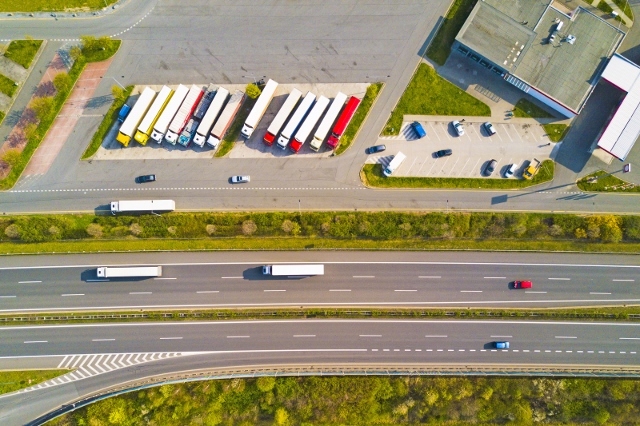Tools to improve road safety
In European countries, theft from trucks on the road is still a problem. There is a very significant lack of safety for transporters, especially at rest areas. In fact, the lack of secure parking is estimated to be equivalent to 100,000 spaces, according to 2019 data. Robberies from trucks by organised criminal groups are still the order of the day, endangering not only the cargo, but in many cases also the physical integrity of the professional drivers. Crime has been on the rise this summer, with fuel theft in border areas between Spain and France.
The increase in theft from trucks on the road and preventing truck theft
Although the European Parliament finally approved the Mobility Package in 2020 and in 2022 the European Commission approved the basic principles for the creation of an EU regulation to regularise and standardise truck parking and rest areas in the EU, theft from trucks continues unabated. Spanish haulage associations have denounced an increase in the number of thefts from Spanish trucks in France in recent months, which has led to heavy losses in the sector. FENADISMER and other organisations that make up the National Road Transport Committee have this summer requested the mediation of the Ministries of Transport and the Interior to demand that the French authorities provide Spanish hauliers with the means to report the facts. The result has been a new hotline number to speed up the French authorities in case of theft.
This is a hotline for hauliers to quickly report the wave of thefts of both fuel and goods from Spanish trucks in the south of France. The emergency telephone number 17 in France contacts the National Gendarmerie Operations and Intelligence Centre (CORG) directly and has been presented as an urgent measure to combat the lack of road safety suffered by professional transport across Europe. A latent problem that affects thousands of professional drivers every day and for which a long-term solution is called for.
What is the most common theft from truckers en route?
Up to 3,000 euros in fuel is the average cost of a truck’s tank. This makes the theft of diesel fuel during mandatory breaks in parking areas one of the most common thefts from trucks on major international routes. The border areas between Spain and France are also key, as tanks are usually full before crossing due to the large price difference between the two countries.
The Transported Asset Protection Association (TAPA) published a study estimating that Spanish hauliers suffered a total of 1,041 thefts from trucks worth €11.4 million between 2021 and 2023. The same report highlights that 42.3% of the thefts suffered by hauliers were directly on the truck; 16.6% were thefts from trailers; 4.8% from warehouses and 3.9% due to theft from goods trucks.
What should a haulier do, if his truck is stolen from on a route?
Parking the truck in a secure truck park, approved by organisations such as TAPA or ESPORG, the European Secure Parking Organisation, is crucial to guarantee maximum safety on the road and prevent theft from trucks. In these cases, the truck parks guarantee minimum standards, such as 24-hour camera surveillance, fenced enclosures and qualified personnel to respond to any incident. In this post we tell you what a safe truck park should look like.
In the event of theft, it is recommended that the driver notifies the relevant authorities and remains with the truck at the scene of the theft. In the case of France, the notification must be made to the emergency telephone number 17. The French Gendarmerie has established a specific protocol for these cases, following an increase in the number of thefts from trucks in recent months. The procedure is essential when claiming from insurance companies.
What other aspects help to improve road transport safety?
There are other useful mechanisms to ensure safety on the road, in addition to reserving a space in a secure truck park. The use of fuel cards and good control of refuelling is also key. It is important that fuel cards, for example, are personalised with a PIN code and linked to a registration number.
In the case of OnTurtle, DieselCards can be limited by country and by station thanks to geolocation systems, which enable refuelling authorisation with double check vehicle-station and card verification. In addition, these fuel cards detect online incidents of unusual behaviour in real time. In the event of anomalies, they are managed from the head office to contact the customer immediately. One more tool to ensure the security of professional transport in Europe and thus prevent possible theft from trucks en route.


